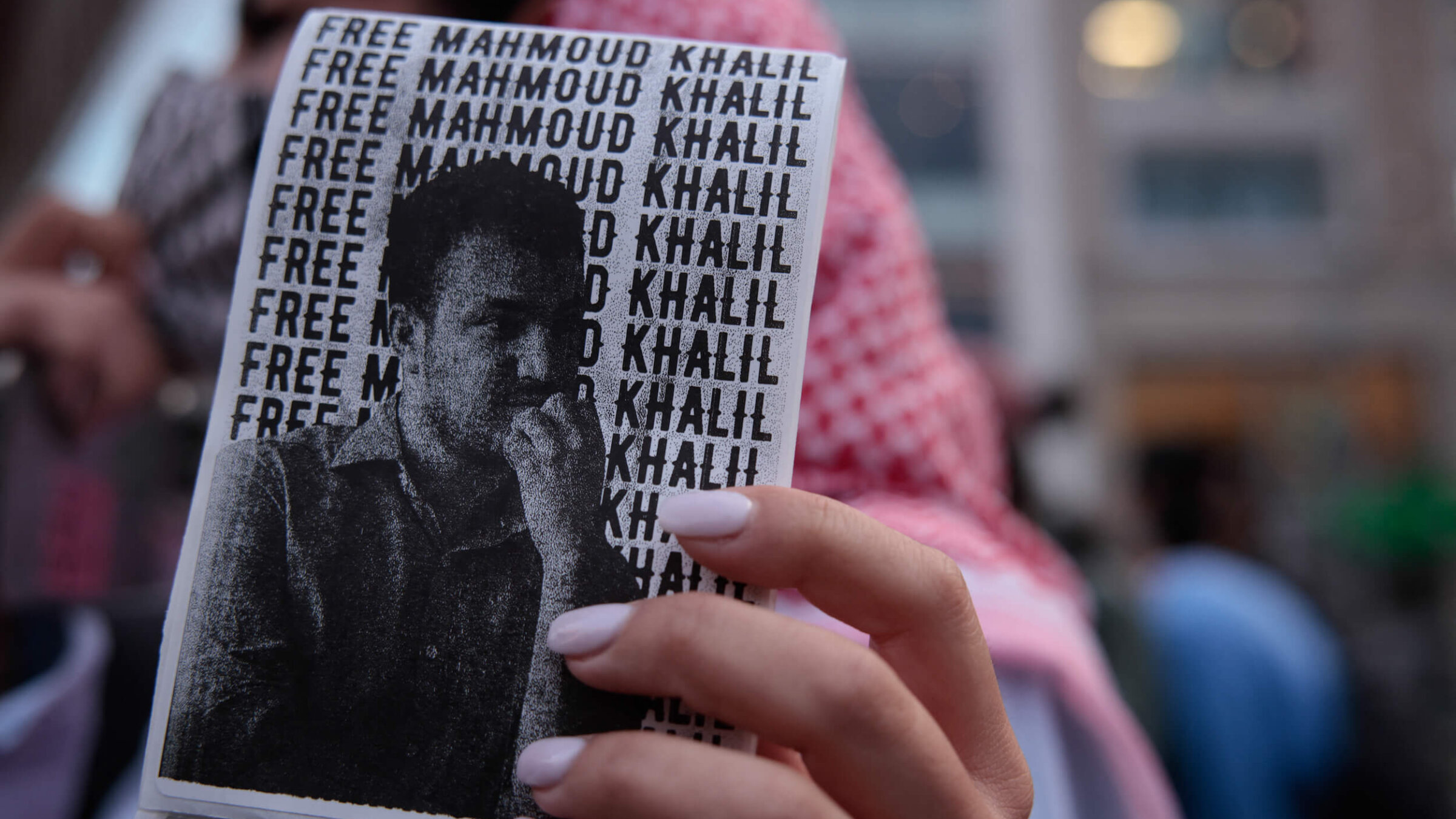Trump’s latest move makes Mahmoud Khalil a Joseph for our times
The Bible teaches us to be skeptical of leaders who grant or withhold liberty on a whim

A pro-Palestinian demonstrator holds a “Free Mahmoud Khalil” sign in Manhattan’s Union Square on May 15. Photo by Kena Betancur / AFP / Getty Images
President Donald Trump’s administration shared Friday that it has no plans to free Mahmoud Khalil, the Syrian-born Palestinian green card holder and activist who has spent the last three months in prison, despite a judge’s order that the government release him.
I read the news, and thought of the story of Joseph’s imprisonment by Pharaoh, in Genesis.
I believe, as I have written before, that Khalil was detained wrongfully and should be released, and that the government’s argument — that Khalil’s “past, current, or expected beliefs, statements, or associations” are lawful but a potential threat to United States foreign policy interests — is an obscene one. People should not be held in prison in Louisiana, or anywhere else, because of their “expected beliefs.”
But it is not Joseph’s own wrongful detainment — on false accusations of rape by the wife of Potiphar, Pharoah’s captain of the guard — that brought his story to mind when it comes to Khalil. It’s the circumstances of Joseph’s eventual release, and what they say about the dangers of an all-powerful leader who governs by whim.
Joseph is ultimately released from prison because he can interpret dreams. This news is brought to Pharaoh, who finds that skill useful, and so frees Joseph to serve him.
Joseph’s subsequent interpretations of Pharaoh’s dreams help avert a crisis of famine in Egypt, and Joseph’s brothers, who sold him into slavery out of envy, eventually come groveling before him, a series of events so spectacular that Andrew Lloyd Webber made a musical out of it.
Pharaoh’s whims were all well and good for Joseph. He got out of prison. He became successful and powerful.
But there is no rule of law in this story. There are no checks and balances. We can read and appreciate the chronicles of Joseph, and still acknowledge that Pharaoh’s was not a system of justice under which we ourselves would want to live.
By “we” I mean both Jews — who were eventually enslaved in Egypt under a new all-powerful Pharaoh, who didn’t remember Joseph — and Americans.
I believe that Khalil should never have been detained, imprisoned for months on end, forced to miss the birth of his first child, and kept from his wife and baby for the first months of that child’s life. But I don’t think anyone needs to agree with me in order to think that it is a crisis for our country that a person detained for his speech and beliefs was ordered to be released by a judge — and yet has not been.
Instead, the government shrugged and changed its rationale, claiming that they were actually detaining Khalil over a paperwork discrepancy. This is concerning, as is the fact that the judge — who had previously said it was “overwhelmingly likely” that Khalil would not be detained over paperwork allegations — then declined to release him because of the administration’s new argument.
Surely even those who don’t agree with me can still appreciate that for a person’s fate to be dictated by whims and arguments that shift like sand undercuts the rule of law, due process, and our system of checks and balances. The very things that keep us from living, like Joseph, with our freedom subject to the fleeting preferences of a leader who enjoys unchecked power.
I have never understood why any Jewish group or leader would cheer on Khalil’s detention as being somehow good for Jewish safety. But I don’t think you need to envision the Jewish groups that have submitted lists of alleged antisemites on visas to Trump’s administration in the hopes of getting them deported as akin to Potiphar’s wife — a character who seeks another’s condemnation out of her own sense of misguided vengeance — to think that it is problematic for our democracy that a judge ruled “you have to release this person” and the government all but responded “no, we don’t.” (Or that the judge then effectively said, “fine, you win.”)
Joseph should not have had to interpret dreams to win Pharaoh’s favor in order to gain his freedom, and Khalil should not have to pass arbitrary tests in order to be treated fairly by the U.S. justice system, and to have that fair treatment be respected by the administration. He should not, like Joseph, need to prove himself valuable or worthy before he can be free.
Because Trump, after all, is not Pharaoh. He is the elected president of the U.S., a country in which schoolchildren, when pledging their allegiance, hail liberty and justice for all. And when Khalil’s unjust treatment by this administration is used to set a precedent in a country, I doubt we will need Joseph to explain to us why we are in a nightmare.
















